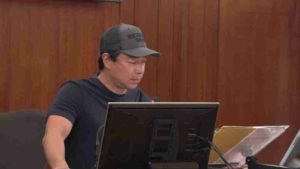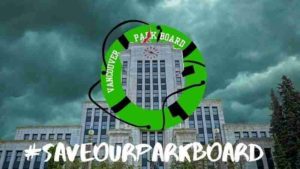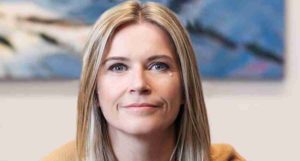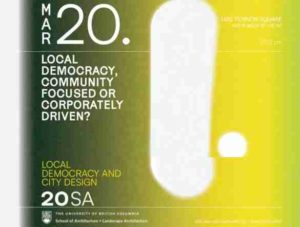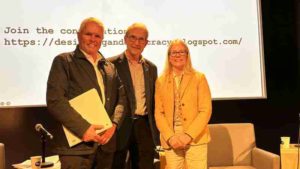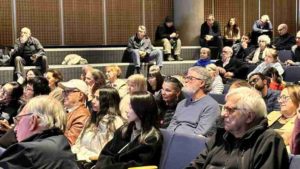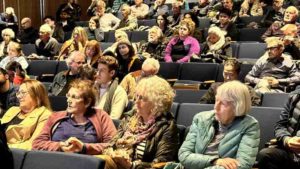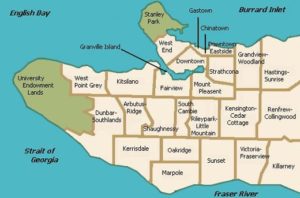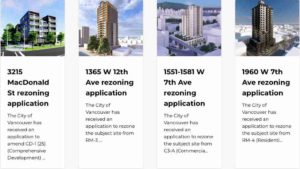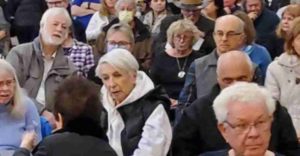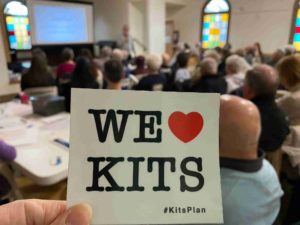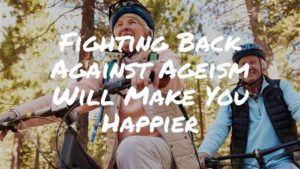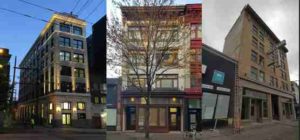
In British Columbia, Single Room Occupancy (SRO) units have long served as a last resort for many of the province’s most vulnerable individuals, including low-income residents, those with mental health challenges, and people grappling with homelessness.
However, these aging, often dilapidated buildings are increasingly unfit for human habitation. As such, there is an urgent need for the British Columbia government to transition vulnerable populations out of rundown SROs in Vancouver, Victoria and elsewhere, toward sustainable, supportive housing models.
By providing care similar to the successful systems used in European countries like Finland, B.C. can address the root causes of homelessness, poverty, and social marginalization while promoting long-term well-being and social integration.
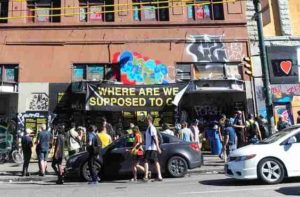
In a 2022 interview with B.C. Legislative reporter Katie DeRosa, then with the Vancouver Sun and now in the same role with the CBC, B.C.’s New Democratic Party Attorney General and Minister Responsible for Housing, David Eby — who was running to replace Premier John Horgan, who had resigned as Premier for health reasons, as leader of the BC NDP — had the following to say about the need for government to provide dignified supportive housing for members of British Columbia’s vulnerable populations living in communities across the province, and move these abandoned individuals out of rundown SROs …
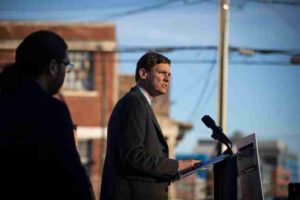 Premier David Eby addresses need to transition people out of SROs
Premier David Eby addresses need to transition people out of SROs
“There really hasn’t been a co-ordinated strategy or a plan about how we get out of the problems of Vancouver’s Downtown Eastside, Victoria and elsewhere. I think … putting an invisible fence around neighbourhoods and saying ‘this is the best we can do’ and just hope that things work out, it’s a strategy that will no longer carry us forward.” Eby said if he’s successful in his bid to replace Premier John Horgan … he’ll co-ordinate a long-term response to homelessness issues across the province, with the support and assistance from the federal government, our province’s towns and cities, and concerned groups.
In point of fact, Premier David Eby has committed to just that, copying the Finnish model that provides supported and affordable housing.
 Juha Kaakinen, Finnish CEO of the Y-Foundation, providing low-cost housing to the homeless
Juha Kaakinen, Finnish CEO of the Y-Foundation, providing low-cost housing to the homeless
“We had to get rid of the night shelters and short-term hostels we still had back then. They had a very long history in Finland, and everyone could see they were not getting people out of homelessness. We decided to reverse the assumptions,” says Juha Kaakinen, CEO of Finland’s Y-Foundation, which provides low-cost flats to homeless people across Finland.
The Deplorable Conditions of SROs

SROs, originally constructed as affordable housing for the working class, have deteriorated significantly over the decades. Many SRO units in cities like Vancouver, Victoria and Kelowna are plagued by chronic disrepair, pest infestations, poor heating and ventilation systems, inadequate plumbing, and a lack of basic sanitation. These environments are not only uncomfortable but dangerous, often exacerbating the mental and physical health challenges faced by their residents.
Research shows a strong correlation between poor living conditions and poor health outcomes, including increased rates of addiction, infectious diseases, and mental health crises. Furthermore, many SRO buildings are located in areas with high crime rates, compounding the risks for residents already facing social vulnerabilities. In essence, SROs have become a symbol of the failure to provide adequate housing and services to the people who need them most. Moving vulnerable individuals out of these dangerous environments is not only a moral imperative, but also a matter of public health and safety.
The Case for Supportive Housing
Supportive housing offers a more sustainable solution to the complex needs of the vulnerable populations currently residing in SROs. Unlike SROs, which often serve as temporary, stop-gap measures, supportive housing provides stable, permanent accommodations where individuals have access to social, medical, and psychological services on-site. This model addresses not only the need for safe and secure housing but also the underlying issues that contribute to homelessness and instability, such as mental health disorders, addiction, and unemployment.
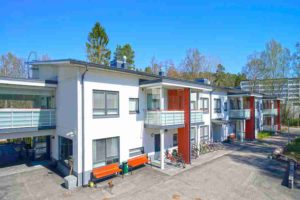
The Globe and Mail’s Kerry Gold on how Finland is solving the problem of homelessness.
In European countries like Finland and Austria, supportive housing has proven to be remarkably successful. Finland, for instance, has implemented the “Housing First” model, which provides stable housing to homeless individuals as the first step toward addressing other social issues. This approach has reduced homelessness by over 50% since its introduction in 2008, with most formerly homeless individuals remaining housed long-term. Austria follows a similar model with an emphasis on affordable, long-term housing paired with social services, which has also led to positive outcomes for at-risk populations.
For B.C., adopting a comparable approach would mean transitioning away from crisis management in the form of emergency shelters or rundown SROs and toward long-term solutions that focus on stability, health, and empowerment.
Supportive housing projects, when coupled with services such as healthcare, employment training, and mental health support, help individuals reintegrate into society, reduce their dependence on public services, and lead more fulfilling lives.
Note should be made that Premier David Eby’s government alone has a long term strategy — that they have committed to implement in their next term of government — to transition members of our vulnerable population out of rundown SROs and substandard accommodation into supportive housing
Cost Efficiency and Long-Term Benefits of Building Supportive Housing

One of the most compelling arguments for supportive housing is its cost-effectiveness. Studies from both Europe and North America demonstrate that investing in supportive housing ultimately saves governments money in the long run. Homelessness and inadequate housing impose significant costs on public systems, including healthcare, law enforcement, and emergency services.
For instance, individuals living on the streets or in unstable environments are more likely to require emergency medical attention, experience police interactions, or become involved in the criminal justice system. In contrast, when people are find safe haven and community in supportive housing, they use fewer emergency services and are better able to manage chronic health conditions, or avoid encounters with law enforcement. Finland’s Housing First model has shown that for every dollar spent on housing and support, the government saves approximately $2 in costs related to homelessness.
B.C., with its high cost of living and significant homeless population, faces similar challenges. Building and maintaining supportive housing units may initially require significant investment, but it will result in long-term savings by reducing strain on public health, criminal justice, and social services systems. Moreover, the social and economic benefits of helping individuals regain stability, employment, and health far outweigh the upfront costs.
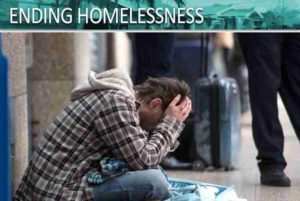
In a government publication titled Lost in Transition, the cost of construction of thousands of supportive housing units would be made possible in part by the savings that would accrue from merging the 277 social services agencies on the DTES into 30 umbrella organizations.
Each of the 277 social agencies employs an Executive Director — at an average annual salary of $500,000 — Directors of Finance, Directors of Human Resources, Managers of Supported Housing, Property Managers and other senior administrative staff — each of these 247 individuals earning up to $375,000 annually — a duplication of services and administration funded by the province, Merging agencies would save more than $1 billion dollars annually that would helo to pay for the cost of building supportive housing on the DTES, and across the province.
The Lost in Transition report questioned if such duplication of services properly serves the interests of those who are resident, and cared for, on the DTES.
There was also recommendation in the Lost in Transition report that argued for the provincial appointment of a Commissioner who would oversee the reformation of the provision of services on the DTES, a person with the authority of a Deputy Minister who would report only to a provincially appointed Board of Directors, which would oversee the transition of the current service model, reporting as well as to the office of the Premier.
A Moral and Social Imperative of Providing Dignified Supportive Housing
Eby government planning to take co-ordination of housing provision for B.C.’s most vulnerable citizens
Finally, there’s a moral dimension to the issue.
In a society as wealthy and resource-rich as British Columbia, allowing vulnerable members of our population to languish in unsafe, unsanitary SRO units reflects poorly on social priorities.
The government has a responsibility — a responsibility recognized by those within the B.C. New Democrat government — to protect its most vulnerable citizens, ensuring that these individuals have access to the basic necessities of life, including safe housing, healthcare, and social support.
Housing is not just a commodity; it is a human right.
By moving away from the outdated, harmful practice of relying on SROs & instead investing in supportive housing, B.C. can take a meaningful step toward ending homelessness and improving the quality of life for our most marginalized citizens.
Relocating vulnerable populations out of rundown SROs and into supportive housing is not just a practical solution; it is an ethical and economic necessity.
In adopting the supportive housing model, British Columbia can — and will, with the re-election of an NDP government — address homelessness more effectively, reduce the long-term social, moral and medical costs associated with inadequate housing, while promoting a more inclusive and caring society.
The time to act is now, with the re-election of a David Eby-led government.
The benefits of the B.C. New Democrats’ approach to building dignified housing for our most vulnerable population will be felt for generations to come.
